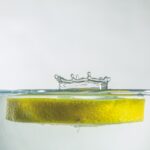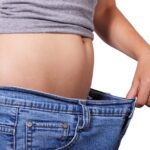Detox diets are claimed to have many benefits, such as quick weight loss, de-bloating the body, and removing toxins for better health. However, there is little scientific evidence to support these claims. Detox plans can vary in length from a few days to several weeks. There are many different types of diets, some of which include the use of supplements and other packaged products, but many simply involve consuming a restricted list of foods and avoiding a long list of others.
There may be many programs available, but not enough scientific evidence supports their use. If you’re thinking about going on a detox diet, it’s important to consider both the pros and cons.
What is a detox diet?
A detox diet is a diet designed to help remove toxins from the body and give the body a chance to eliminate them.
A lot of detox diets involve not eating anything for a little while, then eating mostly fruits and veggies, drinking fruit and veggie juices, and water. Detox diets can also help improve liver and excretory functions by including teas, nut milk, and supplements in the diet.
There are a few detox protocols that call for things like colon cleanses and enemas.
A detox diet is meant to help remove toxins from the body and to jumpstart the body’s natural cleansing abilities. Specifically, a detox diet works to:
- Give your organs a break.
- Stimulate liver function.
- Facilitate elimination through urine, feces, and sweat.
- Improve circulation
- Boost nutrients in your body.
We need to be aware that even though something is considered healthy, it may still contain toxins that build up over time. Although you might eat healthy, you can still improve your health by doing a detox diet.
A detox diet can improve your digestion, reduce inflammation, and protect against chronic diseases.
Pros of a detox diet
Detox programs are appealing to some consumers because they claim to provide certain quick benefits. However, many of these benefits have a downside.
Quick Weight Loss
Short-term detox plans can help you lose weight quickly in several different ways. Although you may not lose fat specifically on these plans, it is still important to take note of them. You might see changes in how your clothes fit and on the scale.
Most detox plans significantly reduce your carbohydrate intake. Many people believe that restricting certain foods will help them lose weight, but this is not always the case. Water loss is a common side effect of low-carbohydrate diets.
Carbohydrates are your body’s preferred energy source. After you eat carbs, they are turned into a type of sugar called glycogen. Glycogen is a type of sugar that is stored in the liver and the muscles to be used when needed. This means that for every gram of glycogen that your body stores, it also holds on to three grams of water.
When you reduce your intake of carbohydrates, your body no longer needs to store the water required to process them. The result? A lighter, thinner body. If you have a lot of water weight to lose, you could lose up to five pounds in a week while detoxing.
Many detox plans also eliminate foods that are high in sodium. Consuming less salt also helps to reduce water weight.
Lastly, detox plans promote weight loss by limiting solid food consumption. The average healthy person consumes around 2,000 calories per day from solid food.
A detox diet involves eating only liquids or very small amounts of solid food. Many detoxes involve consuming only liquids like broth or juice. These types of detoxes do not allow for any solid food. If you consume mostly broth and juices, as opposed to solid food, you will probably see a decrease in the number of calories you consume, and thus, a decrease on the scale.
In other words, it is not likely that you will be able to maintain these losses Remember that these weight changes are not long-lasting. It is unlikely that you will be able to keep up these losses. Normal dieting habits will allow your body to hold water correctly, and subsequently, you will see an increase in weight.
Limited-Time Effort
Most nutrition experts recommend a gradual and consistent approach to weight loss and healthy eating. Although it may seem counterintuitive, making small changes over time is usually the best way to improve your health. This has been borne out by studies.
Authors of a study found that slow weight loss is more effective at changing body composition, even though rapid weight loss can be effective.
Some people find the idea of a long-term weight loss or healthy eating program to be daunting and unattainable. A short-term commitment that results in quick changes sounds much more appealing.
While diets that promise quick detox results may not be sustainable, they can be a gateway to better nutrition for some people. A shorter detox plan can give you quick results that may motivate you to continue for a longer period of time. This strategy is used by some commercial weight loss programs to make their clients believe that they have the power to make changes and slim down.
For example, if you’re able to eliminate processed foods from your diet for three days, you might be motivated to cut back on those foods for another week. And then, perhaps you’ll be able to go a month without eating processed foods.
A detox program can introduce people to healthy foods that they might not normally eat.
Short-Term Benefits
A quick detox plan can improve your health in the short term, even if it doesn’t help you lose weight or change your body composition. The changes may lead to people making healthier food and beverage choices in the future.
Dietary changes may improve sleep quality, which is something that has been researched before. According to a study published in Advances in Nutrition, diets high in fat are associated with poorer sleep quality, less REM sleep, and more frequent awakenings during sleep. The researchers say that more research is needed to understand the link between diet and sleep.
Your beverage choices may help improve your sleep during a detox diet, even if your modified food intake doesn’t make a difference. If you give up caffeine and alcohol as some detox plans require, you may find it easier to fall asleep and to sleep for longer. Sleeping better at night has been associated with making healthier food choices during the day.
Some people report that their skin looks better when they stop consuming alcohol and foods that are high in sugar or sodium. A short term detox diet is not likely to produce changes that last. The American Academy of Dermatology has stated that trendy supplements and quick elimination programs are not likely to be as effective as a nutritious diet full of nutrient-rich whole foods. These whole foods include fruits and vegetables, whole grains, and healthy fats.
Resets Habits
If you come home feeling bloated, heavy, and out of sync, it might be because you’re dehydrated. You might find yourself eating more decadent foods when you’re away from home.
If you eat foods high in sodium, sugar, and carbs while on vacation, you will most likely retain water weight. If you eat a lot of starchy, salty, or sugary foods, your body will start to crave them after a week or so.
A short diet consisting of 3-7 days can help you to clean up your eating habits, and reset the way you taste food. This diet can also help you to reduce water weight. A short cleanse can help some people reset their eating habits and return to a more nutritious diet.
Cons of a detox diet
Like anything else, detox diets have their disadvantages. You should consider some things before taking on a detox diet because it is an extreme form of dieting. The cons of a detox diet include:
Highly restrictive
A detox diet is a diet that severely restricts what you can eat. A detox diet differs from other diets in that it eliminates all food, rather than focusing on a specific food group.
On many detox diet plans, you are not allowed to have any liquids for up to five days. This means you will not eat anything of substance. A detox diet usually means eating and drinking only certain types of food and beverage, with a large restriction on what is allowed. This can be difficult for many people.
A detox diet can be difficult because you have to consume fewer calories. If you’re feeling hungry while on a detox diet, the uncomfortable physical symptoms that come with hunger can make the detox diet more difficult to stick to. It may be difficult to get used to a highly restrictive diet at first, but most people report that the associated feelings and symptoms go away within a day or two.
See-saw effect
There is the danger of binge eating during or after a restrictive detox diet. The “see-saw effect” refers to the extreme hunger that can accompany a detox diet, which can lead to binge-eating, often on unhealthy foods. Binge eating while on a detox diet negates the benefits of the diet and can actually increase your toxic load.
The yo-yo effect is especially problematic for people who try a detox diet to lose weight. If you are overweight or obese, a detox diet will likely not help you lose weight. This is especially dangerous for obese people.
Health concerns
There is always a risk of health problems with restrictive detox diets. People who are overweight or obese are at greater risk for developing health problems.
Detox diets may cause serious health complications for people with diabetes or kidney disease. If you consume too few calories, it can lead to health problems and complications. You should talk to your doctor before beginning a detox diet if you have any conditions that might be affected by it.
Other health problems that can arise from a detox diet are mainly due to the fact that some detox diets are not safe. Some detox programs require that you consume vegetable and fruit juices that have not been handled properly. These can lead to bacterial infections that, if left untreated, can be serious. Relying only on detox juices and supplements is not enough to ensure a successful detox diet.
Fatigue
Many people who go on detox diets report feeling fatigued. The feeling of being tired and fatigues is caused by low calorie intake and low carbohydrate levels. When following a detox diet, be sure to take it easy and not overdo it.
Restrict or eliminate exercise during a detox diet. You should not do intense workouts while you are doing a detox diet. If you are used to working out intensely, you should take a break while you are detoxing.
How to do a detox diet
The first step in beginning a detox diet is to remove any foods or other circumstances that may act as sources of toxins. Caffeine, alcohol, and nicotine are all things that should be cut out. The consumption of these toxins can have harmful consequences.
Whole organic foods should be the focus of any detoxification plan. This may be the most important gift you can give your body. Eliminate all processed foods, especially things like processed sugars.
Starting your day with lemon juice is a simple way to detox. Lemon water can flush your system and also contains electrolytes in the forms of potassium, calcium, and magnesium. Lemons help your liver produce enzymes that aid digestion and break down toxins. The lemon’s vitamin C is a powerful antioxidant that will absorb and neutralize dangerous free radicals.
Some detox teas are widely available. Dandelion and Milk Thistle teas help reduce the accumulation of toxins. The teas also have ingredients that help the liver repair itself. It is best to avoid teas that claim to be able to detox the body, as many of these products contain ingredients such as appetite suppressants which can potentially be harmful.
The most effective way of detoxing is to set out a program for meal plans. These diets will require serious research and planning.



